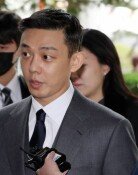[Editorial] Let Us Recover Hope in the New Year
[Editorial] Let Us Recover Hope in the New Year
Posted December. 31, 2004 23:00,
A new year has come. We Koreans should be filled with joyful emotions as it marks the 60th year of Koreas independence, but that is not the case. The year 2004 saw so many confrontations and divisions that some said, We underwent all the conflicts that can arise all at once. We wonder whether Koreans will be able to unite together once again after all the wounds and discords. Some say conflicts are growing pains needed for improvement, yet how can we talk about hope when we are divided and torn apart?
However, we should not give up on ourselves. There were twists and turns, yet we made it this far. Korea is nearly the only country in the world that achieved industrialization and democratization together in a mere half a century since the end of the war. We also uprooted poverty and dictatorship even in the aftermath of the tragedy of division of the country and the Korean War. Now is the time to live up to our potential. We did not tighten our belts and work that hard only to escape hunger. We did so because of our long-held aspiration to grow as a main player in Asia and the world.
What is urgently needed is to reconfirm the fact that free democracy and the market economy are our ideological milestones. Regardless of conservative or liberal leanings, this very fact should be ensured. Competition, if done at all, should be done on this basis. That will prevent ideological disputes from transforming into a wasteful dispute over political colors or a hostile confrontation between conservatives and reformists. A firm foundation of shared ideologies would make no room for any ideological dispute. Therein lies the reason why President Roh Moo-hyuns government has experienced division and confusion over the past two years.
In addition, the 1948 system should be acknowledged. Feeling sorry for Koreas division is one thing, acknowledging the legitimacy of the Republic of Korea, established in 1948 by the May 10 election, is quite another. To be sure, we should overcome Koreas division. An independence of a divided Korea is an incomplete independence. However, the national consensus is that division should be overcome peacefully and step by step. What should never be forgotten is that efforts to improve the 1948 system continued unendingly through diverse forms of policies towards reconciliation and cooperation with the North in past authoritarian regimes.
The alliance between Korea and the U.S. should be put at the center of Koreas diplomacy. We have felt acutely the side effects of rash anti-American sentiments and arguments for independence for the last two years. Amid Chinese pursuit of hegemony and the Japanese move to be a military powerhouse, our insight and wisdom to exploit the Korea-U.S. alliance is desperately needed. We have to resolve the North Korean nuclear issue in a peaceful manner in the framework of six-way talks and, while working to reorganize the power structure in Northeast Asia, transform the frame into a multilateral security system that will guarantee security and peace on the Korean peninsula. One hundred years and 95 years have passed since Japan forcefully signed a pact with Korea to forfeit its right to diplomacy in 1905 and lose its sovereignty to Japan in 1910, respectively. We should never be played in the hands of powerhouses again.
Against this backdrop, President Roh Moo-hyun has to unite this nation and its public on this ideological, diplomatic, and security basis. The president shouldnt be one who takes only one side. It was not just his supporters that saved President Roh from the risk of being impeached by giving the majority of seats to the ruling party in last years April 15 general elections. It was the majority of public. Then, how can he become everyones president? It is high time that he stood in the middle of values and society.
His idea to distance himself from politics according to the principle of separating the government and the ruling party is not necessarily right. As illustrated in the first year of the 17th National Assembly, the president should be a mediator with good intentions when the ruling and opposition parties confrontations go to extremes. That is because the ultimate responsibility to take care of politics so that the public can lead their lives comfortably is the presidents.
True, three years are left in his tenure, yet theres not enough time left for him to work for the public. Reelection and by-election in April 2005 will be followed by local elections in June, and local elections will be the preliminary stage of the 2007 presidential election. Until then, this year is the only one when there will be no national election. The president and the ruling circles must not be greedy. They should dismiss empty, division-evoking, and overly idealized reform tasks. It would be a pity if the majority of the public suffers from reform fatigue for the sake of the moral self-satisfaction of their leader and ruling circles.
It is fortunate that the Roh Moo-hyun administration, though belatedly, stepped forward to stress reviving the economy and the public livelihood. We see no reason for a government that fails to resolve the economic difficulties in ordinary peoples lives to exist. Yet, mere rhetoric or passion for the resuscitating of the economy cannot bear fruit. The government should recognize the importance of the free market economy as a determinant of the economy, and globalization as that of the environment.
It does not follow, however, that the government should sit idly in the market economy. The government should have an expanded role to aid the poor and secure the social safety net. It also should continue its financial and monetary policies aimed at the mitigation of ups and downs of the economy. Nevertheless, the governments role should be somewhat limited so that it does not infringe upon the markets autonomy and creativity. It shouldnt control the market by making up stories about failed markets and trying to disguise obviously private goods as public ones. Eased regulation of the market would activate the private economy, and more jobs would push welfare upwards on a 10-fold scale than the governments plans.
A dichotomy seen in Korea--separating big companies from mid- and small-sized ones, the management from labor unions, the rich from the poor, and the metropolitan areas from rural ones--finds no place in the global economy. The dire reality is that when government pressures corporations and the rich because of political and social emotions, they only end up leaving for overseas. The governments oppression of the metropolitan areas, captivated by its logic for balanced national development through downward equalization, would make Seoul fall behind Shanghai or Singapore in terms of competition. In order for the developmental settlement of a polarized economy, efforts for division in economic aspects should be stopped.
The main opposition party, the Grand National Party, also should change. It would do well to lay out concrete alternatives ranging from the economy to the public livelihood and compete. The last thing it should do is repeat its past behavior to take advantage of the ruling circles faults or to hinder their governance for political reasons. It should not turn to outdated mechanisms, either. By presenting plausible visions, it should change into a party the public can trust and place its expectations on.
The year 2005 also marks the 85th year since the foundation of Dong-a Ilbo. As always, this paper will never neglect to keep close watch on the powers and report injustices in society by releasing sound arguments and plain reporting. This paper will also lead efforts to alleviate and heal the wounds of division and separation caused by differences of ideology, generation, class, region, and faction. It has already called for the nation to tread the path of reasonable conservatism and stay away from self-destructive ideological disputes between the extreme leftists and rightists through the New Right Campaign. In the New Year, we should unite once again. We should recover hope.
Headline News
- Med professors announce intention to leave hospitals starting Thursday
- Bridge honoring Sgt. Moon Jae-sik unveiled in Pennsylvania
- Chief of Staff Chung tells presidential secretaries to stay away from politics
- US FTC bans noncompete agreements
- N. Korea launches cyberattacks on S. Korea's defense companies







